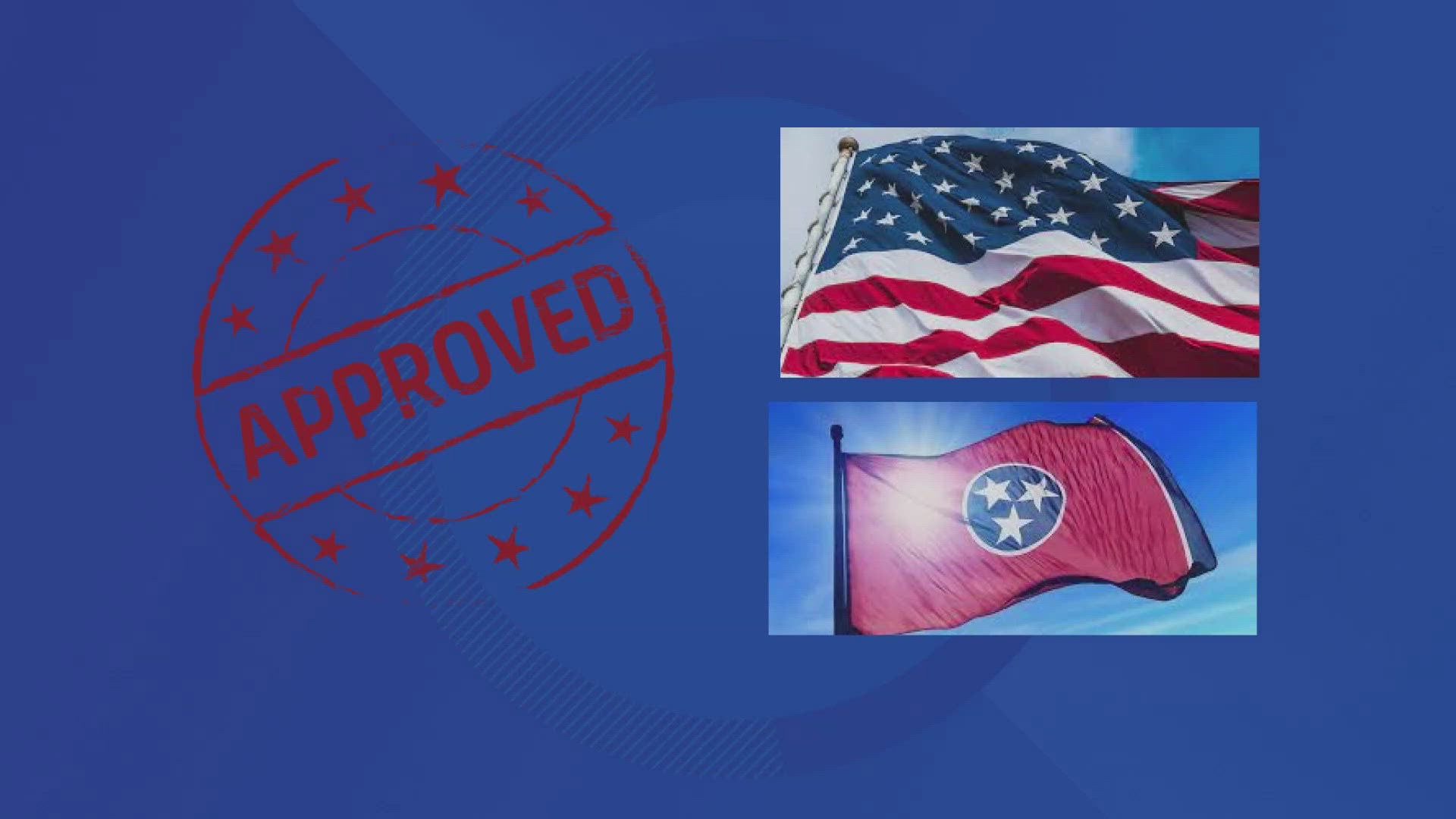NASHVILLE, Tenn. — A bill that would restrict most flags from flying at schools unless they're included in a specific list passed a House committee on Thursday. Opponents of the bill said HB 1605 is aimed at keeping Pride, Progress and other LGBTQ+ flags from flying at schools.
It would also specifically allow parents and guardians to sue schools if a restricted flag is flown. The list of allowed flags is available below.
- The U.S. Flag
- The official Tennessee state flag
- A flag that cannot be disturbed or altered pursuant to § 4-1-412
- The POW/MIA flag
- A flag that represents an Indian tribe, as defined in 25 U.S.C. § 5304
- A flag that represents a city, county, metropolitan government, or other political subdivision of this state
- A flag that represents any unit, branch, or other division of the armed forces, including, but not limited to, an ROTC program
- A flag that represents a country or political subdivision thereof
- A flag that represents a college or university
- A flag that is displayed temporarily as part of a bona fide course curriculum
- An official school flag
- The flag of an organization duly authorized to use a public school building; provided, that the flag of an organization duly authorized to use a public school building may only be displayed at the time and place that the organization is authorized to use school property
It was introduced by Rep. Gino Bulso (R - Brentwood).
"[It] really addresses one issue, which is whether parents should be the ones to decide what values their children are exposed to when they go to school," he said during a House Education Administration Committee meeting.
Rep. Harold Love, Jr. (D - Nashville) asked if a band flag could be displayed under the amended version, and Bulso said it would qualify as a flag representing a college or university.
Love, Jr. later said the bill may restrict the General Assembly flag from being flown in schools since it is not a city, county, metropolitan government or political subdivision. Attorneys at the committee meeting said it may be allowable as a "political subdivision," but the legal definition would need to be determined by a court.
He said that since the bill specifically allows parents and guardians to sue schools for flying restricting flags, it was important for lawmakers to be as specific as possible.
Rep. Scott Cepicky (R - Culleoka) also asked if a country's past flags could be displayed at schools, and attorneys said it was not clear if flags would need to be current. He then asked for the committee to go into recess, when lawmakers discussed the language of the bill.
Rep. Sam McKenzie (D - Knoxville) then asked if the Confederate flag could be flown according to the bill. Bulso said the bill would not change whether the Confederate could be flown as written in state code. Attorneys at the meeting then said it would be up to a court's interpretation whether the Confederate flag could fly.
Rep. John Ragan (R - Oak Ridge) asked attorneys if existing state code barred the Confederate flag from flying because it was divisive. The attorney said they could not answer factual questions, and could only speak on the language of the bill.
Rep. Antonio Parkinson (D - Memphis) then asked attorneys about whether historic flags could be flown according to state code, specifically asking about the Confederate flag and the Nazi flag.
"That describes the historic flags in historic battles, and in one section you read through, it said about countries, which could mean that Nazi flags are allowed," said Parkinson.
Three people then spoke in opposition to the bill.
One said a recent Supreme Court ruling, Kennedy vs. Bremerton School District, found teachers "did not shed their Constitutional rights to freedom at school." She said one interpretation of the bill could restrict teachers' tattoos, coffee mugs or jewelry.
"What about a rainbow with the LGBT symbol in the shape of a circle, or a Black Lives Matter mug?" she said. "And if a rainbow necklace is banned, what about a Cross necklace? ... These teachers are not indoctrinating, they are not giving LGBT lessons, they are not making children gay. This is already not allowed. The only problem that exists is the few parents who do not want their kids exposed to people who are different than them, and this is virtually impossible in our schools."
The bill passed the House Education Administration committee and will be discussed in the Senate Education Committee on Feb. 21.

